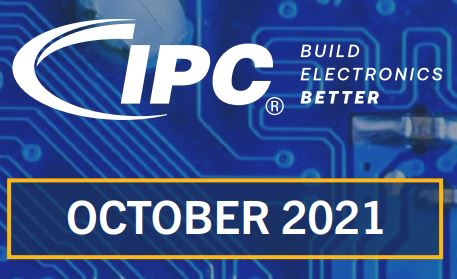|
Dear IPC Members:
I hope you are yours are staying safe and healthy.
Here in the United States, we're nearing a resolution on the long-debated Biden administration’s “Build Back Better” package and bipartisan infrastructure deal. Be sure to check out TOP NEWS OF THE WEEK below for what this could mean for our industry.
In Europe, this week brought us fresh debate on proposed sustainability reporting requirements, which likely will affect our industry. We will keep you updated on this issue, but in the meantime, please let us know if you have any questions or suggestions. See EUROPEAN UNION below.
We truly appreciate everyone’s assistance with advocacy efforts this year, and we ask you to continue your engagement in 2022. If you have not already, help us plan for next year by taking our five-question survey and let us know how we can best help you.
All the best and stay safe,
Chris Mitchell
Vice President, Global Government Relations
TOP NEWS OF THE WEEK
Biden Releases Framework of $1.75 Trillion Budget Deal: U.S. President Joe Biden this week unveiled a $1.75 trillion framework for his “Build Back Better” package, which is set to fund a host of social safety net and climate issues, and electronics manufacturers have some reason to be optimistic. Notably, there is language that addresses bolstering critical supply chains, supporting advanced manufacturing research, and financing cybersecurity workforce development and upskilling programs. Biden has proposed increasing taxes on corporations and wealthy individuals to pay for the measure. IPC Contact: Ken Schramko.
...And a Vote Nears on Major Infrastructure Package: Meanwhile, IPC is also eying progress on negotiations with the $1 trillion bipartisan infrastructure bill, which is set to be passed in tandem with the Biden administration’s budget bill. Of note to electronics manufacturers, the bill features provisions supporting the implementation of smart manufacturing technologies and practices. IPC supports the bill and has welcomed the prospect of historic investments in America’s roads, ports, electric grids, and digital networks, in part because America’s infrastructure depends on reliable electronics. We’ll share more information as it arises, and let us know if you have any questions or concerns. IPC Contact: Ken Schramko.
PIP (3:1) Compliance Deadline Extended to October 2024: After considering input from IPC and other stakeholders, the U.S. Environmental Protection Agency (EPA) announced a proposed rule on October 28 to further extend compliance deadlines on the final risk-management rules for phenol, isopropylated phosphate (3:1) – PIP (3:1) – a chemical substance used as a flame retardant and plasticizer in electronics. The new compliance deadline would be October 31, 2024 – three years and seven months beyond the original deadline of March 8. The EPA will examine new requests for extensions beyond the 2024 date by evaluating documentation to support specific uses of PIP (3:1) in articles, including the steps taken and the estimated time to identify, test, and qualify substitutes and the specific need for replacement parts. Comments on the proposed rule are due by December 27. Please stay tuned for more information from IPC, and let us know if you have any questions. IPC Contact: Kelly Scanlon.
How Can Government Help or Hurt You in 2022? We’re Looking for Your Concerns and Stories: As we look towards 2022, we want to know what our members are worried about. What are the key challenges you are facing right now, and what about over the horizon? How can the IPC Government Relations team best advocate for you? Your feedback will be handled in confidence and not used without your permission. Please click here to answer a 5-question survey, including one open-ended question where you can send as little as a few phrases or as much as a 100-word story that we can share with others to illustrate the challenges facing our industry. Thank you for your help! IPC Contact: Ken Schramko.
DEFENSE AND SECURITY
Support Grows for Lead-Free R&D in Congress: The U.S. Senate Appropriations Committee last week released their FY 2022 defense appropriations bill, which for the first time included language supporting further research and development (R&D) into the issues surrounding lead-free electronics in mission-critical applications. The U.S. House version of the defense appropriations bill, which was approved by the House Appropriations Committee in August, includes $7.5 million for this purpose. IPC has called for a five-year, $40 million investment in a public-private R&D program to support the transition of various aerospace, defense, and high-performance (ADHP) electronics to lead-free technologies. Read more here. IPC Contact: Chris Mitchell.
IPC and USPAE Urge Industry Collaboration in Defense Industrial Base Issues: IPC and the U.S. Partnership for Assured Electronics (USPAE) recently called for increased partnership between U.S. Department of Defense (DoD) and industry. IPC and USPAE advocated for increased DoD engagement with industry to better understand the microelectronics supply chain and address defense industrial base concerns. The comments also urged the DoD to implement Section 841 of the FY 2021 National Defense Authorization Act (NDAA), which would bolster supply chain security for printed circuit boards (PCBs) and printed circuit board assemblies (PCBAs), and to leverage IPC-1791 — Trusted Electronic Designer, Fabricator and Assembler Requirements — to ensure trusted sourcing for critical military and national security applications. IPC Contact: Ken Schramko.
ENVIRONMENT & HEALTH
EPA Unveils Plan to Regulate PFAS by 2023: The U.S. Environmental Protection Agency (EPA) recently released a strategic roadmap to regulate per- and polyfluoroalkyl substances (PFAS). The roadmap signaled that companies should be prepared to provide data and information about the usage of PFAS in their products and processes. IPC recently submitted comments to the EPA on a separate proposed rule that would require all manufacturers and importers of PFAS to report information regarding uses of thousands of PFAS. Check out a recent IPC blog for our full comments. IPC Contact: Kelly Scanlon.
IPC Coordinates Comments on Proposed PFAS Ban in Europe: Five EU Member States have proposed restrictions of all per- and polyfluoroalkyl substances (PFAS) under the Registration, Evaluation, Authorization and Restriction of Chemicals (REACH) regulation. IPC is engaged on this issue and recently coordinated feedback on the proposed restriction with other downstream users of PFAS; the group submitted a non-exhaustive list of examples of “missed uses” of PFAS. For more information on the “missed uses,” including the electronics industry’s uses, please contact Kelly Scanlon.
Interested in Chemical and Product Regulations in Asia? To help our members, IPC has created nine white papers highlighting the history of chemical regulations, current regulatory systems, recent regulatory updates, and anticipated trends in the Asia-Pacific region. Each white paper has recently undergone an updated deep dive by our environmental and health experts. You can find our refreshed white papers here; let us know if you have any questions or concerns. IPC Contact: Kelly Scanlon.
EUROPEAN UNION
EU Parliament Debates Proposed Sustainability Reporting Requirements: The European Parliament’s Legal Affairs Committee (JURI) began debate this week on the European Commission’s proposal for a Corporate Sustainability Reporting Directive (CSRD), which IPC wrote about here. JURI members welcomed the proposal’s ambition to strengthen existing reporting requirements and stressed that future mandatory reporting standards should be clear, proportionate, and aligned with existing international standards. A plenary vote on the CSRD is expected in March 2022. IPC will continue to track and advocate for a reporting environment that is workable for electronics manufacturers. Please let us know if you have any questions or suggestions. IPC Contact: Alison James.
TAX, TRADE, AND SUPPLY CHAIN
IPC’s Latest Economic Trends Report: Supply chains continue to be under tremendous pressure, and container ship reliability remains stuck near all-time lows across the world. Consumer spending and business investment both slowed in the third quarter in the United States, and some of the slowdown is due to limited supply and higher prices. The United States was not alone in seeing weaker growth, with China also recording disappointing third quarter results. Check out the latest global economic data in IPC Chief Economist Shawn DuBravac’s Monthly Economic Outlook Report and let us know if you have any questions. IPC Contact: Shawn DuBravac.
HELP US SPREAD THE WORD ON SOCIAL MEDIA
 |
|
 |
“Supply chains continue to be under tremendous pressure. Container ship reliability remains stuck near all-time lows across the world. Not only is the U.S. seeing weaker growth, but China and Europe are also feeling the effects.” The latest IPC Economic Outlook is available, and author Shawn DuBravac, PhD, CFA, IPC chief economist, provides insights. |
“Quality products start with the people who are assembling them. But even before that comes education…” Check out a new article in EMSNOW for an excellent read on the critical need for training and education in electronics manufacturing.
. |
KEEP IN TOUCH WITH US
Meet the IPC GR Team: Whether it’s engaging with policymakers in Washington, D.C., in the European Union or in China, the IPC Government Relations (GR) Team proactively seeks opportunities to educate, inform and influence policymakers on policies that spur innovation, growth and competition, while protecting human health and the environment. But our success depends on your support and engagement. Learn more and get involved in IPC advocacy today! IPC Contact: Chris Mitchell.
Subscribe to IPC Global Advocacy Report: If you’re a member of IPC, manage your e-mail preferences and opt in to receive “Advocacy” updates. If you are not an IPC member — or you’re not sure — please send a note to friends@ipc.org, and our staff will add you to the list.
Follow us on Twitter and LinkedIn.
Contact one of us if you have any questions or insights to contribute.
Tell us how government policies affect your business.
See prior editions of Global Advocacy Report.
Explore our IPC Government Relations information online.
|
